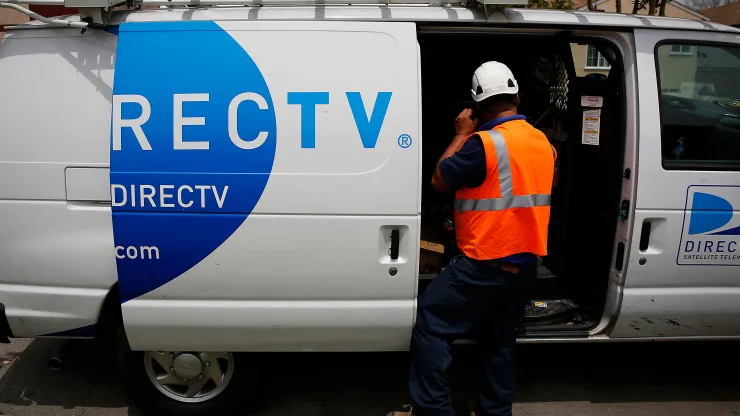DirecTV is laying off hundreds of employees — roughly 10% of its upper ranks — as the company looks to reduce costs amid the heightened pain of cord cutting for pay-TV providers, according to people familiar with the matter.
Most of the job cuts will be at the manager level, the people said, citing an email to employees sent on Friday. Managers make up about half of DirecTV’s fewer than 10,000 employees, one of the people said. The affected employees’ last day will be Jan. 20.
“The entire pay-TV industry is impacted by the secular decline and the increasing rates to secure and distribute programming,” a DirecTV spokesperson said in a statement. “We’re adjusting our operations costs to align with these changes and will continue to invest in new entertainment products and service enhancements.”
DirecTV became a private company in 2021 when AT&T entered into a deal with private-equity firm TPG to spin off DirecTV and its related businesses, with an implied enterprise value of $16.5 billion at the time. AT&T acquired DirecTV in 2015 for $48.5 billion and the assumption of debt.
DirecTV and its peers have long been under pressure as customers cut the cord and opt for streaming services. The rate of cord cutting accelerated in the third quarter, according to MoffettNathanson.
Satellite TV providers such as DirecTV and Dish in particular have seen some of the highest pay-TV subscriber losses in recent years. While DirecTV no longer publicly reports its subscriber base, the company has about 13 million customers, according to analyst reports and one of the people familiar with the job cuts.
DirecTV reportedly lost around 500,000 customers in its most recent quarter, according to ratings agency Fitch. Although DirecTV’s losses slowed during the height of the pandemic, they recently accelerated to nearly 17%, according to MoffettNathanson.
In addition to satellite TV, the company also offers DirecTV Stream, an internet-TV bundle similar to Google’s
YouTube TV and Dish’s Sling.
Competition has ramped up in rural areas as broadband and fixed wireless companies build out networks in areas where satellite TV providers were once some of the only TV providers.
Meanwhile, fees to carry broadcast and cable channels continue to rise. Executives across the industry have cited rising fees as partly responsible for accelerating pay-TV customer losses in recent years.
Plus, media companies have been offering more of the content traditionally found on linear TV, such as weekly shows, live events and sports, on streaming services, further pulling value from the pay-TV bundle.
DirecTV’s contract recently ended for the rights to the NFL’s “Sunday Ticket” package of out-of-market Sunday games. It held the rights since the inception of “Sunday Ticket” in 1994 and had been losing about $500 million annually on the package, CNBC previously reported.
The impending layoffs include only a small portion of employees connected with “Sunday Ticket,” the people said.

